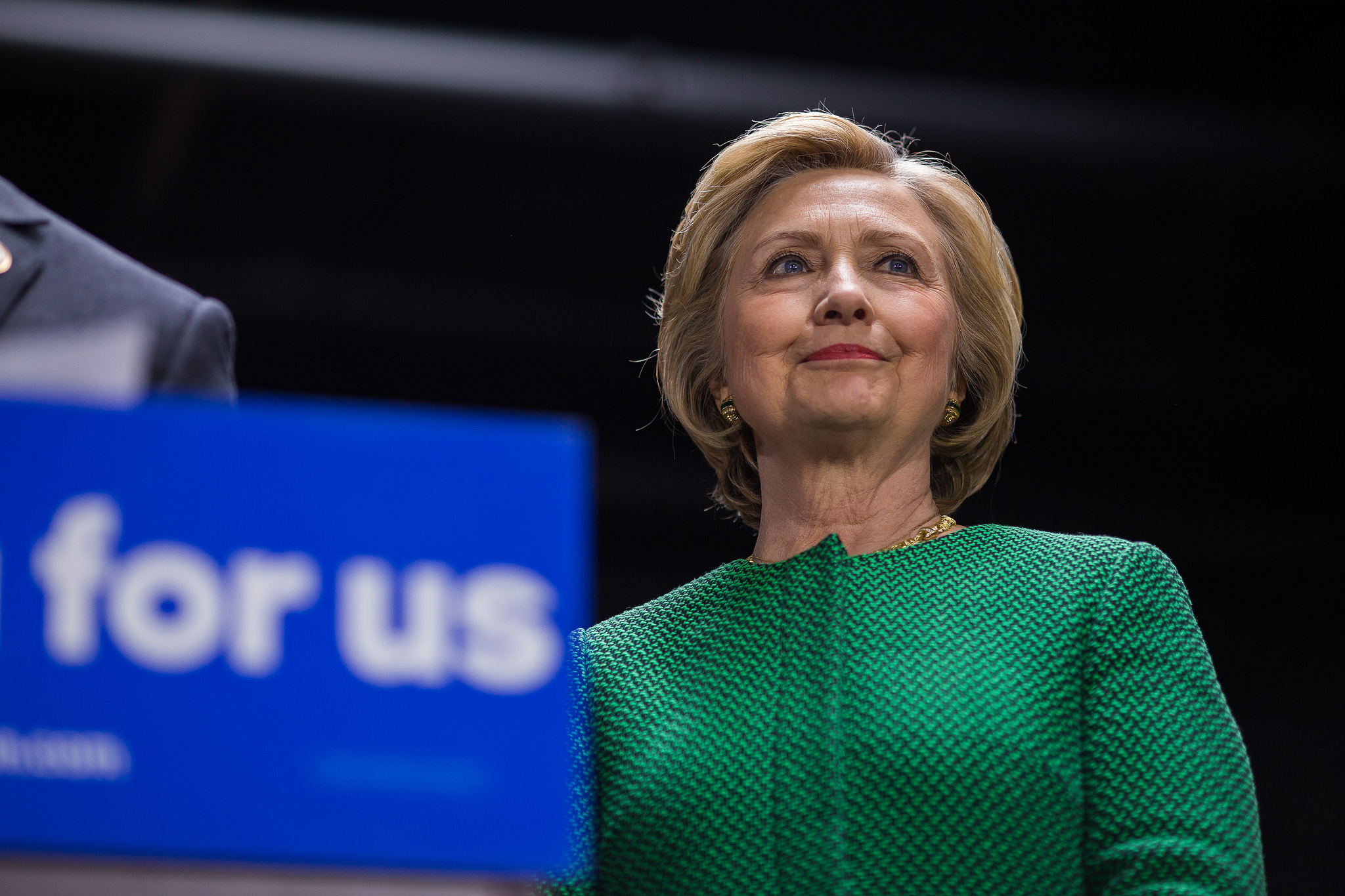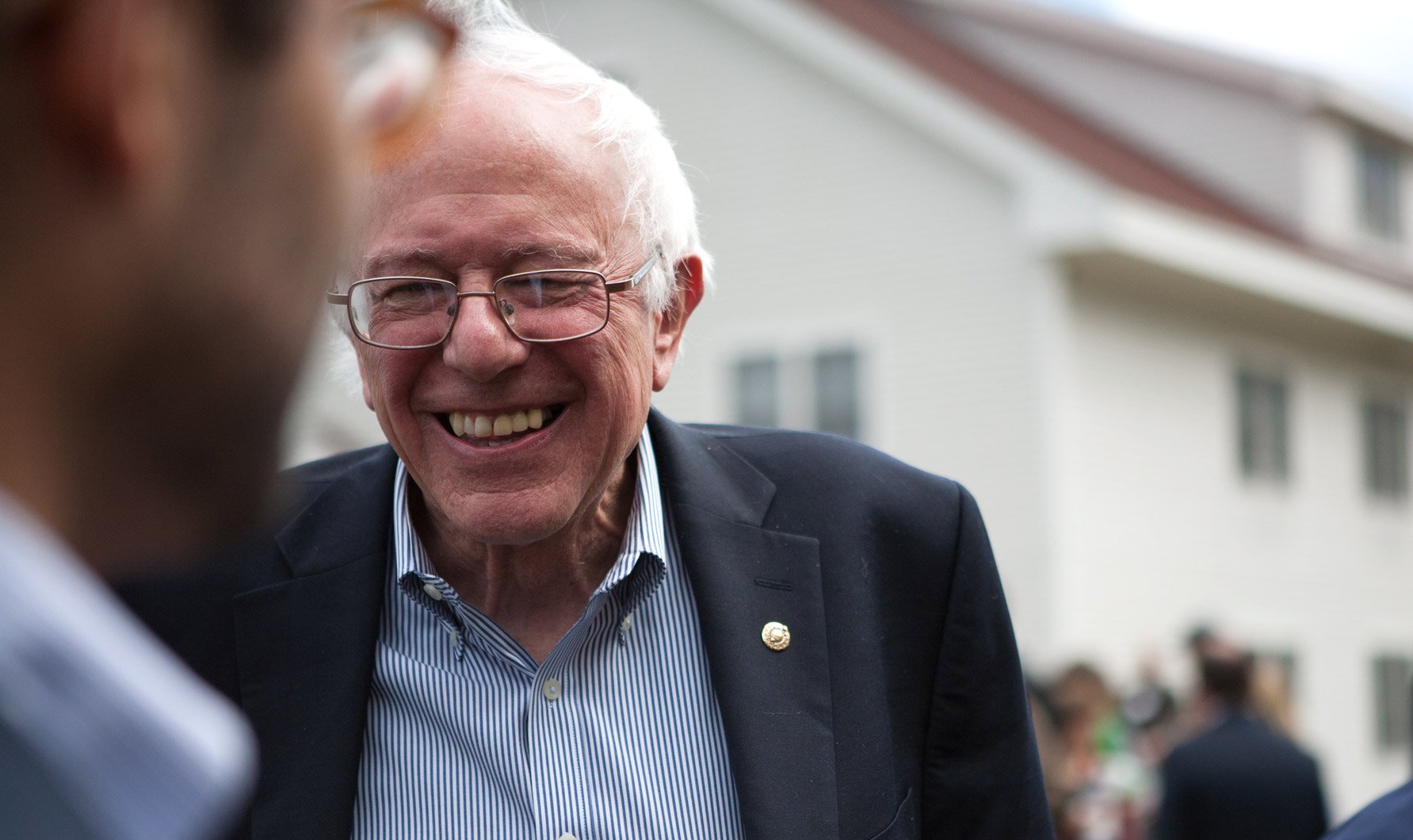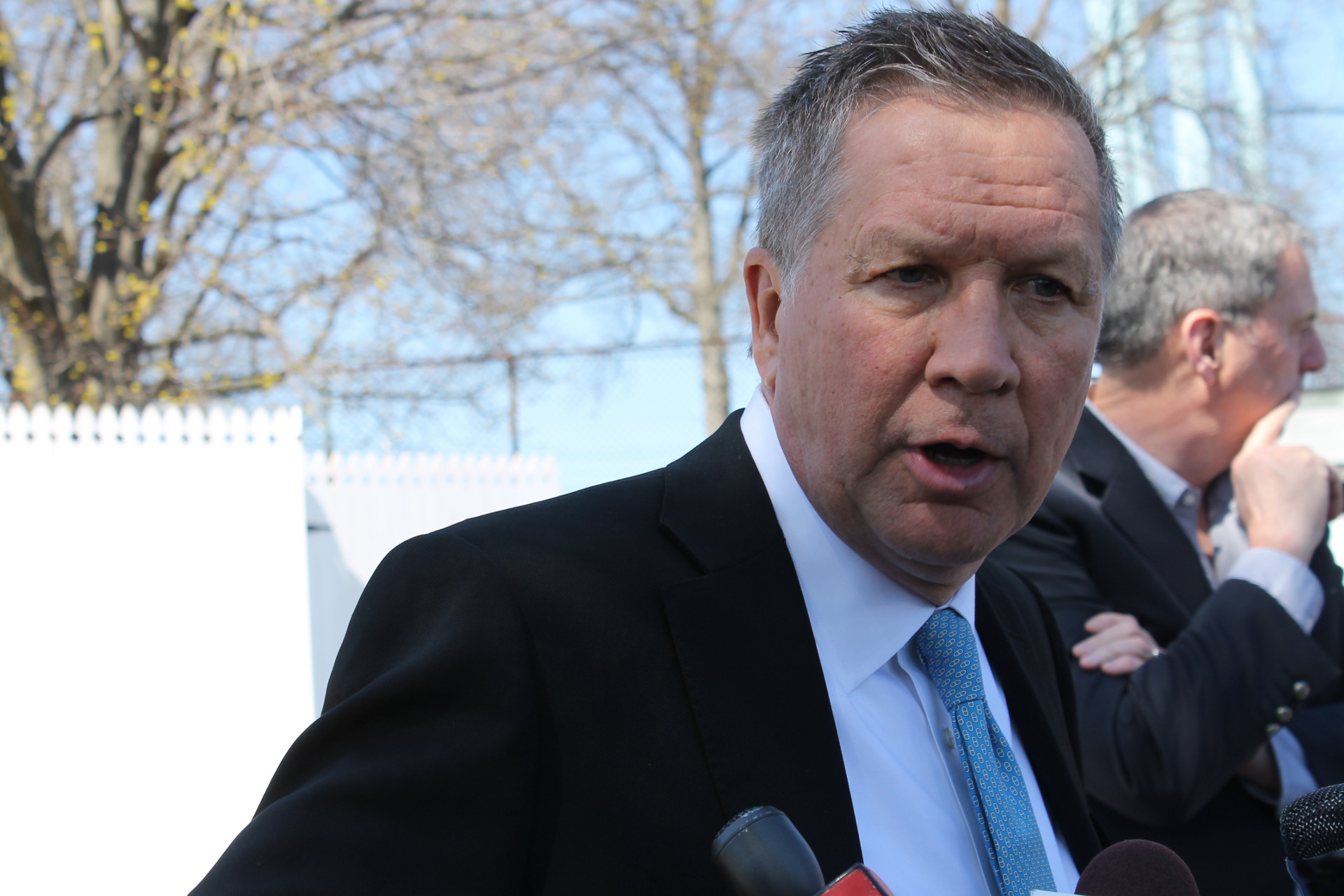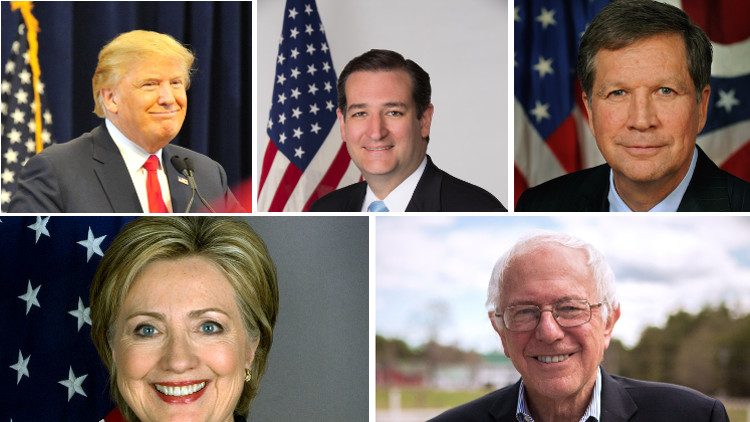Long Island voters will head to the polls Tuesday to cast their ballots in an unusually pivotal primary election in New York State that could tip the balance of the race in favor of the Democratic and Republican front-runners.
Currently entangled in a bitter and at times scurrilous race for the Republican nomination are real estate mogul and reality TV star Donald Trump, U.S. Sen. Ted Cruz (R-TX) and Ohio Gov. John Kasich. Dueling it out for the Democratic ticket are former Secretary of State and two-time U.S. Senator from New York, Hillary Clinton, and U.S. Sen. Bernie Sanders (I-VT), a self-proclaimed Democratic socialist. As it stands, the convention delegate math favors Trump and Clinton, but both races are far from over.
What’s remarkable is that New York voters can play such an important part in the process because by this point in previous primary seasons, the contest was essentially decided. This year’s race has already been unlike any in recent memory.
Take Trump’s campaign for starters. The former host of The Apprentice has said his share of incendiary comments. He’s pledged to ban an entire religious group from entering the country, employed a campaign manager who was arrested for grabbing a female reporter, openly discussed in a televised debate the size of his penis and said that women who had an abortion in a world where the procedure was illegal should be punished (before backtracking). Yet he is the Republican candidate leading the polls in New York.
Not to be outdone, Cruz, Trump’s closest rival, has talked about carpet-bombing ISIS, proposed that police conduct patrols of so-called Muslim communities and railed against “New York values.” So far, only two of his GOP colleagues have endorsed him: U.S. Sen. Mike Lee (R-Utah) and U.S. Sen. Lindsey Graham (R-South Carolina).
Kasich, by contrast, has tried to portray himself as the adult in the bunch, but that’s hardly translated into success at the polls. Tellingly, a voter at an MSNBC-hosted town hall in Jericho the other day challenged Kasich, asking him, “Who told you that you’re all that popular?” The governor has only won his home state, which hosts the GOP convention in Cleveland this July, and he’s trailing Trump and Cruz in New York. In the battle for delegates, he is a distant fourth—he even trails Sen. Marco Rubio (R-FL), who dropped out of the race more than a month ago.
Kasich is still trudging forward with the hope that neither Cruz nor Trump will reach the 1,237-delegate count necessary to clinch the nomination on the first ballot, giving party elites the chance to ignore the will of the people and pick who they want to be the GOP nominee. The downside is the risk that a floor fight—or worse—could split the party apart before November’s general election. But Kasich’s gamble has a better chance of paying off now that U.S. Rep. Paul Ryan (R-WI), speaker of the House of Representatives, claimed he wouldn’t accept the party’s nomination if it came to that.
The race for the Democratic nomination has been less acrimonious, but that’s not to say that the two contestants aren’t digging in for a mud-slinging finish. Since the primary calendar shifted from Wisconsin to New York almost two weeks ago, Clinton and Sanders have traded their share of jabs, with the Senator from Vermont claiming Clinton is unqualified to be president because she voted in favor of the Iraq war, and Clinton hammering Sanders for his failure to clearly explain the specifics of his policy objectives and his opposition to the family members of Sandy Hook Elementary School shooting victims being able to sue gun manufacturers. The pair also engaged in their most contentious debate yet Thursday in Brooklyn.
Clinton’s second campaign for the White House has also been dogged by questions about her use of a private email server while she was Secretary of State and for giving private speeches to Goldman Sachs employees that netted her $675,000. The former first lady, chief diplomat and U.S. Senator has also had to deal with the suggestion that she’s untrustworthy. In a recent AP opinion poll, 55 percent rated her “unfavorable,” compared to 40 percent “favorable.” (For comparison’s sake, the AP poll found that Trump’s ratings were 69 percent “unfavorable” and 26 percent “favorable.)
Meanwhile, Sanders, who was pegged as a fringe candidate early on, has shown he has considerable staying power. He’s been able to outraise the seasoned Clinton political machine in recent months, with Sanders’ supporters pouring $44 million into his coffers in March alone—$15 million more than Clinton raised that same month. And he’s accomplished this while also railing against the influence of money in politics and the rise of super PACs—groups ostensibly unaffiliated with presidential campaigns that can spend unlimited amounts, thanks to the U.S. Supreme Court’s Citizens United ruling. But Sanders reportedly trails Clinton in New York by double-digits in the polls. His nuanced views on guns haven’t played too well in the Empire State, nor has his inability to explain how he’d actually break up the big banks and dispel concerns about his wavering support of Israel. All told, he’s provided his skeptics an opening to further question how his major policy proposals could ever be fulfilled.
So, here we are, Long Island. Two months have passed since the primaries officially got underway, and neither party has yet to coalesce around a single candidate. That’s why, for the first time in years, New York has a say in the matter. What say you, NY?
DEMOCRATS
Hillary Clinton

Clinton adopted New York as her own after leaving the White House to begin her political career. New York elected Clinton to the U.S. Senate in 2000. Eight years later, she made her first bid for the White House but lost the primary to then-U.S. Sen. Barack Obama (D-IL), who would later appoint his one-time rival as Secretary of State. Back on the trail again, Clinton must feel like she’s re-living a bad dream. Yet again, Clinton is facing off against a lesser-known candidate skilled at inspiring young people to engage in the political process. But this time her path to the nomination appears clearer. Clinton has touted her experience across all levels of government. She is campaigning to fight the gun lobby in order to pass “common sense” gun reform, address student loan debt, equal pay for women, build upon Obamacare and continue what she started internationally as the nation’s top diplomat. Clinton has received support from older middle-class Americans and minorities but has struggled to convince young people that she’d be their champion in the White House. Her supporters, however, believe Clinton has the experience needed to get the job done in Washington.
Bernie Sanders

The way this campaign is unfolding, it doesn’t appear likely that Sanders will be satisfied with a moral victory. Sanders, who was born in Brooklyn to an immigrant father, has done what many people thought impossible: outraise a candidate who has spent decades developing a political machine. Sanders has won seven of the last eight primary contests leading up to New York’s April 19 vote, and he continues to attract hundreds, if not thousands, to his spirited campaign rallies. The former mayor of Burlington, Vermont, and ex-Congressman, says his stance on several hot-button issues has remained the same throughout his political career. After serving 16 years in the House of Representatives, Sanders was elected in 2006 to the U.S. Senate, where he’s continued to fight for progressive causes. Sanders’ campaign has called for an end to institutional racism, raising the federal minimum wage to $15 an hour, reforming Wall Street, passing legislation that would essentially reverse the Citizens United decision, providing free public college to all Americans and transforming Obamacare into single-payer health insurance. Sanders has also pledged to protect the environment and reverse the negative effects of climate change. Despite his efforts, Sanders has been unable to crack Clinton’s solid support among African American voters, so he has relied upon the backing of white working class voters and Millennials.
REPUBLICANS
Donald Trump

We all knew he was an entertaining showman. But Trump has convinced his loyal supporters that he’s more than a reality TV star. The billionaire businessman has a tremendous following from voters who felt abandoned by the Republican Party and are dissatisfied with establishment politicians. The real estate mogul has made it tough at times to truly predict how he’d operate once in the White House. He was in favor of punishing women who underwent abortions if they were ruled illegal, but in response to a backlash of criticism he said he’d only punish the abortion providers. He said he’d bring back water-boarding torture of enemy combatants, but then said he wouldn’t force the military to break the law against war crimes. Where Trump has been consistent are his views on immigration. Trump wants to make it impossible for undocumented immigrants to enter America illegally by compelling Mexico to build a wall across the southern border. He is against allowing Syrian refugees from settling in the US. On top of that, he wants to ban all Muslims from coming into the country, and he has tossed around the controversial idea of placing all Muslims in a database. Trump has also called for trade reform with countries such as China, changing the tax code so businesses wouldn’t pay more than 15 percent of their income in taxes, while also eliminating federal taxes for anyone making less than $25,000 annually and repealing Obamacare. His detractors say he’s a modern day American fascist whose ill-conceived ideas would harm the country irreparably. His supporters, however, say he’s the only candidate with the guts to tell it like it is, bolster the military and strengthen the country at home and abroad. Or as his baseball cap puts it: “Make America great again.”
Ted Cruz

The U.S. Senator from Texas has billed himself as the only true Conservative in the race. Cruz, the son of a Cuban refugee father and an American mother, was elected to the Senate amid the Tea Party wave of November 2012, and he has been steadfast in his vision to defend the right to bear arms, to secure the Southern border and uphold “religious liberty.” Many voters may know Cruz as the guy who led a federal government shutdown in 2013 out of opposition to Obamacare, which even angered some of his Republican colleagues. He’s also called Senate Majority Leader Mitch McConnell (R-Ky) “a liar.” Cruz is unapologetic about rolling back the power of Uncle Sam and transferring it to individual states. Like Trump, Cruz’s campaign has not been without controversial comments. A star of Princeton University’s debate team when he was an undergraduate, Cruz said his plan to defeat the so-called Islamic State would be to “carpet bomb them into oblivion.” The term is used to describe indiscriminate attacks—which is outlawed by the Geneva Convention because it causes so many civilian casualties. “I don’t know if sand can glow in the dark,” he added, “but we’re going to find out.” After the recent terrorist attacks in Brussels, Cruz suggested that authorities here “patrol and secure Muslim neighborhoods” to prevent radicalization, which also drew scrutiny and the ire of the Muslim American community. The Texas Senator believes that marriage is a union only between a man and a woman. As someone who is pro-life, he has advocated for defunding Planned Parenthood. He also wants to shrink the size of the federal government by eliminating the Internal Revenue Service, Department of Education, Department of Energy, Department of Commerce and Department of Housing and Urban Development.
John Kasich

The Ohio governor is trailing so far behind delegate-leader Donald Trump that there’s no reasonable expectation he’ll win the Republican nomination outright. Kasich, however, has other plans. By remaining in the race, Kasich wants to prevent Trump from reaching the 1,237-delegate count required to win the nod, thereby forcing a contested convention in Cleveland. Once there, anything can happen, or so he hopes. Kasich is banking on establishment Republicans to support him on the convention floor once delegates become unbound after the first round of voting. But there’s no guarantee Cruz and Kasich will be able to impede Trump’s path to the nomination. So Kasich is reaching out to moderate voters uncomfortable with Trump’s blustery approach and Cruz’s uber-Conservative views. On abortion, he said he would want Ohio to defund Planned Parenthood. Kasich is running on his record as a Congressman and a governor, his current position. Kasich has talked about giving more power to states and has pledged, if elected, to send Congress a plan within the first 100 days of his presidency to balance the federal budget, cut taxes and spur job creation. He also loves to talk about “electability”—telling voters that he’s essentially a shoe-in to win his home state of Ohio—a crucial swing state—in the general election. Kasich would also repeal Obamacare and replace it with a system that would lower costs without placing a burden on businesses.
Happy voting, LI!





























